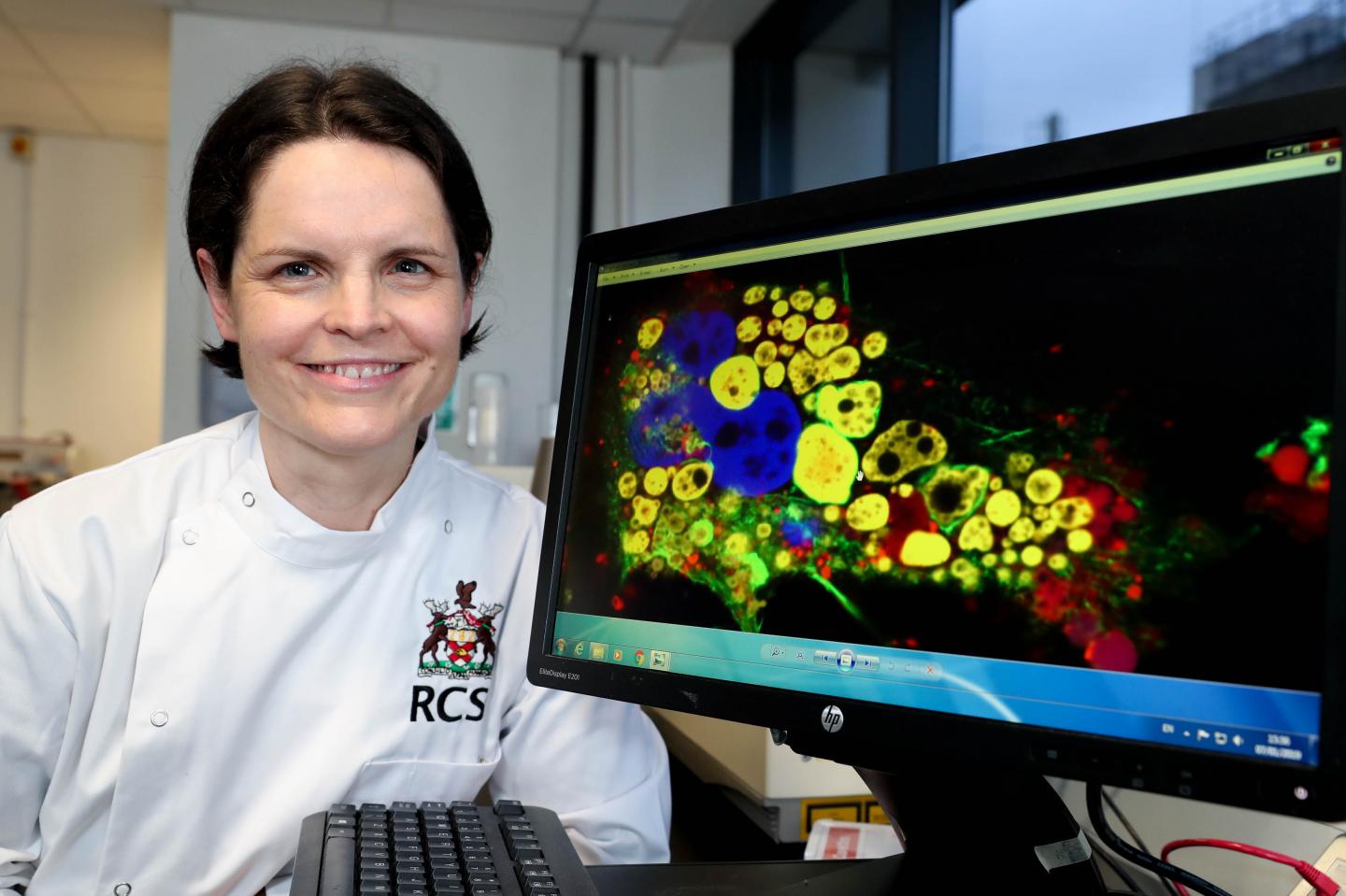Newly developed medicine could be used to treat hundreds of thousands of patients with tuberculosis

Credit: Maxwell Photography
Tuesday, 8 January 2019: Led by researchers at RCSI (Royal College of Surgeons in Ireland), a team of researchers has developed a new treatment for tuberculosis (TB). This work could offer a practical treatment that has the potential to be scaled-up and mass-produced for clinical testing.
The treatment, which patients will take using an inhaler, works by reducing the bacteria in the lungs that causes tuberculosis while also helping the patient’s immune system fight the disease.
There is only one vaccine for tuberculosis, developed in 1921. It is unreliable in preventing the most common form of TB, and is not suitable in all patient groups. The vaccine works best against specific forms of TB and is usually given to infants in at-risk populations.
Tuberculosis is one of the top 10 causes of death worldwide. The World Health Organization (WHO) data show that 10 million people fell ill with TB and 1.6 million died from the disease in 2017. WHO estimates that there were 558,000 new cases with resistance to the most effective first-line antibiotic. Of those resistant to the drug, 82% were resistant to multiple antibiotics.
Funded by the Health Research Board (HRB) and the Royal City of Dublin Hospital Trust, the research is published in the European Journal of Pharmaceutics & Biopharmaceutics.
The work, led by Dr Gemma O’Connor and Prof Sally-Ann Cryan in RCSI, was carried out in collaboration with research teams in St James Hospital, Trinity College Dublin and Imperial College London. Prof Joseph Keane and Dr Mary O’Sullivan led the team at St James Hospital and Trinity College Dublin with Dr Brian Robertson and Dr Nitya Krishnan leading the team at Imperial College London.
Multidrug-resistant TB (MDR-TB) is seen as both a public health crisis and a health security threat. Ending the TB epidemic by 2030 is listed among the health targets of the United Nations Sustainable Development Goals.
The pathogen that causes tuberculosis spreads by people breathing infected droplets into their lungs, where the disease can remain dormant or spread further. The research makes use of a derivative of Vitamin A called all trans retinoic acid, atRA, which previous studies have shown is an effective treatment for tuberculosis.
“Many cases of TB are now becoming resistant to existing antibiotics. This new treatment could be used alongside antibiotics to treat drug-resistant TB and also possibly reduce the rate of antibiotic resistance resulting from conventional antibiotic treatments,” said Prof Cryan, Associate Professor of Pharmaceutics in RCSI School of Pharmacy and the study’s senior author.
Using a spray-drying process, the researchers packaged atRA within safe-for-consumption particles that are small enough to use in an inhaler. These particles efficiently delivered the treatment and significantly reduced tuberculosis-causing bacteria and associated lung damage, which supports their potential for clinical testing.
“Unfortunately, tuberculosis remains a significant problem for world health. We urgently need innovative treatments like this one if we are to achieve the UN 2030 health targets,” said Prof Keane, Professor at Trinity College Dublin School of Medicine and Consultant Respiratory Physician in St James’s Hospital.
###
RCSI is ranked among the top 250 (top 2%) of universities worldwide in the Times Higher Education World University Rankings (2019) and its research is ranked first in Ireland for citations. It is an international not-for-profit health sciences institution, with its headquarters in Dublin, focused on education and research to drive improvements in human health worldwide. RCSI has been awarded Athena Swan Bronze accreditation for positive gender practice in higher education and was awarded Investors in Diversity accreditation in 2018.
Media Contact
Michael Sullivan
[email protected]
353-014-025-126
Related Journal Article
http://dx.




